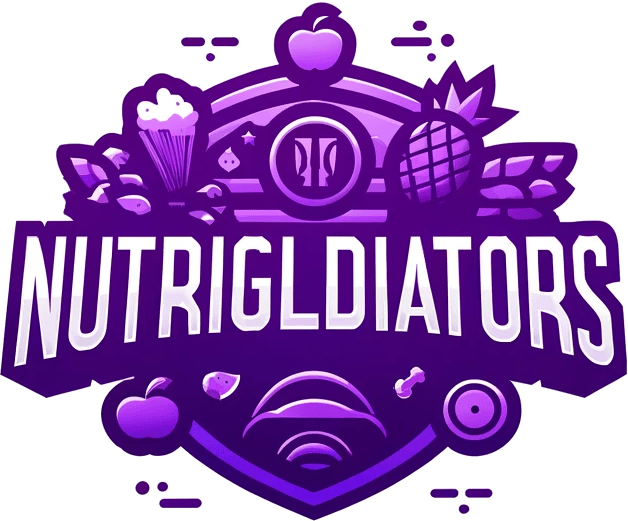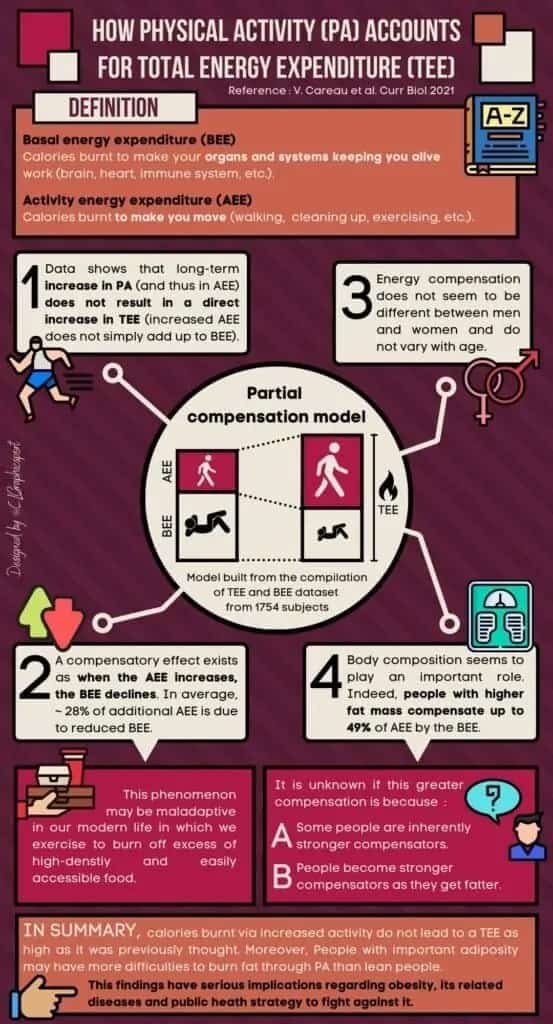[ad_1]
It pretty much goes without saying that there’s a lot of nutrition misinformation out there, and as a registered dietitian who has been practicing for 23 years, I’ve seen a lot of it. That’s probably why you’re on my site reading this right now: because you know that I’m going to give you the real facts about food and eating.
Even some of what we’ve always thought to be longstanding nutrition ‘facts’ are actually completely wrong. This includes things that I’ve told people in the past, which is…well, when we know better, we do better.
Weight is 70% diet, 30% exercise.
I used to tell people this all the time, and I’m so sorry. I think it was borne out of the realization somewhere in the early 2000s that weight loss happened primarily with diet – all the time we were spending in the gym wasn’t helping anyone lose weight.
That holds true (see the point below), but it’s also an oversimplification of the very complex situation that is weight and weight loss. Distilling that down into what we eat and how we move is misleading.
In reality, there are other things at stake, including:
Genetics
Socioeconomic status
Medications
Access to healthcare
Education level
I wrote more about the social determinants of health here.
When we make weight loss seem simple, and people can’t achieve it because it’s actually not, this can create shame. I teach this Shame Cycle in my Eating After 40 course:


Shame does absolutely nothing to help us lose weight. In fact, it causes the opposite effect. The vast majority of people I have counselled around their weight have talked about the shame they’ve felt about themselves and their eating habits.
This shame has kept them stuck in the same diet cycle.
My recommendations:
Let’s acknowledge that weight does have to do with what we eat and how we move, but that those are just two things out of many that determine what we weigh.
The more you work out, the more weight you lose.
Compensatory mechanisms prevent this, and recent research proves that. This 2021 study looking at energy compensation and adiposity outlined how our bodies adjust metabolically to ensure that even with increased activity, we don’t lose a large amount of weight.
I went into detail about this study in this post, but the quick and dirty is this:
Our bodies don’t like to lose weight, as anyone who has tried can tell you. We’ve evolved as humans to resist weight loss because to our bodies, it signals starvation. So our bodies prevent that from happening by lowering our metabolic rate to burn fewer calories.
We still do burn calories from exercise, of course, but scientists found that our bodies compensate for around 28% of them.
This infographic by Clement Lanfranchi illustrates the process beautifully:


Interestingly, individuals in the study who were obese, had a higher rate of compensation – up to 49%. It seems as though the more fat mass a person has, the higher the compensation. In other words, it’s harder for fatter people to lose weight via activity.
Aside from metabolic compensation, there’s also a degree of permissiveness that often comes with exercise, as well as increased hunger. All of these things work against us when we’re trying to lose weight with exercise.
Exercise is still a valuable tool, even if not on its own for weight loss. It improves mental health, body composition, cardiovascular strength, and risk for chronic disease.
My recommendations:
Moving your body in a way you enjoy has physical and emotional benefits, but don’t go all 90s and spend hours working out, either. And definitely don’t use exercise to burn off what you’ve eaten. Not only is that disordered, it doesn’t work.
You want to prevent all inflammation.
Inflammation can actually be healthy, and acute inflammation, which is what occurs when we are sick or hurt, is absolutely normal. Even exercise – moderate paced activity – causes inflammation in our bodies. It does, however, reduce inflammation in the long-run, according to research.
In fact, without the inflammatory process, we’d all be dead. Unfortunately, the wellness industry makes it seem that the opposite is true – and that we should be afraid of all inflammation.
I feel like more of the people on social media who preach about inflammation, don’t even know the first thing about it; they use the term to create fear and anxiety in order to sell something.
It’s important to understand and distinguish between the two types of inflammation.
Unlike acute inflammation, chronic inflammation is what we don’t want to have. This is a low-level inflammation that appears to be associated with many illnesses. We can’t jump to conclusions about inflammation because the cause of all these illnesses. For example, obesity is linked with inflammation, but research shows that excess fat produces inflammatory mediators that cause chronic inflammation.
We aren’t actually sure why some cells start secreting pro-inflammatory molecules, as this interesting 2019 study about inflammation through the life cycle describes. It describes DNA damage, chronic infections, diet, microbiome dysbiosis, and environmental toxins as a few of the causes that are thought to have this effect.
Does an anti-inflammatory diet even exist? Here’s what I think.
My recommendations:
We actually aren’t exactly sure what an anti-inflammatory diet looks like, but as a dietitian, I always advise people to focus on their diet as a whole, versus individual foods that influencers say ‘fight inflammation.’
What the research suggests, is that a diet full of plants, fish, and healthy fats, and light on alcohol, meat, ultra-processed foods, and sugar, seems to be our best bet.
You can only use 25 grams of protein at a time to build muscle.
New research on protein and muscle building disputes this, but it’s important to take it in context, starting with the title: The Anabolic Response to Protein Ingestion During Recovery from Exercise Has No Upper Limit in Magnitude and Duration In Humans.
We’re talking here about muscle building after exercise, not anything else like satiety, weight loss, or whatever.
It was previously thought that our bodies could only use 20-30 grams of protein at one time to build muscle. We believed that any more than 30 grams per meal had no additional benefit for muscle growth.
The study suggests that we can use up to 100 grams of protein at a time for muscle synthesis. It also found that our bodies use that protein to build muscle for a lot longer than we thought – 12 hours, to be exact. This is important, because it shows us that we can theoretically eat more protein at a one meal than another, and still build muscle.
This is not about protein absorption; if you eat too much protein, it does get converted into fat.
It’s also not about ramming 100 grams of protein into each meal, which would be incredibly filling and likely would crowd out other important nutrients and foods.
Getting adequate protein is important for muscle building and maintenance (especially as we age), as well as satiety. In my practice as a dietitian, I see a lot of clients who either don’t eat enough protein or, they don’t space it evenly throughout the day to help make every meal more filling.
Recommendations:
Even if it’s not required for muscle building, I still recommend spacing protein roughly evenly at each meal to maintain satiety and satisfaction. Not every meal in your entire life is going to look like that, but it’s a good goal.
For most healthy people, I recommend 1.4 – 1.6 grams of protein per kg.
‘Wellness’ and the wellness industry are good things and are making people healthier.
While it’s great that people are interested in their health, losing touch with reality isn’t exactly what I’d call ‘healthy.’
The wellness industry increasingly leads us to micromanage our bodily functions, ‘hack’ our lifespan, worry about mysterious diagnoses and vague symptoms that we didn’t know we had, and spend millions of dollars on untested, unproven treatment and supplements.
Netflix You Are What You Eat Review: Netflix Does it Again.
The entire wellness sphere is like a soft, dimly-lit cocoon that envelops its followers with its reassuring promises, its image of perfection, and its suggestions that we can manifest our own ‘life transformation.’
But all of that is fantasy, not reality. The wellness industry is out to make money, not make you well. It creates an illusion that if we just try hard enough, or pick the right ‘protocol,’ we’ll be renewed. It’s all false promises that lead to a never-ending cycle of feeling like it’s our fault when we fail.
Hint: it’s not.
Health is complex, as we saw in Fact #1. It’s not about celery juice every day or buying the right type of nut milk. It’s about a lot of different things, things the wellness industry can’t fix, because it caters to privileged people who are the most well, ignoring the people who need ‘wellness’ the most.
My recommendations:
If your obsession is chasing the next wellness trend, please take a step back. What are you looking for? What do you need? What are the long-term effects of the false hope you’re receiving and vast amounts of money you’re spending on this industry?
Science changes. Misinformation abounds. Make sure you’re getting your nutrition information from reputable sources.
Click here to get Wealth Boost Ideas at discounted price while it’s still available…
[ad_2]


